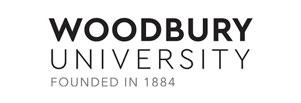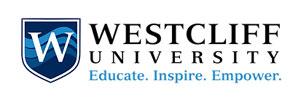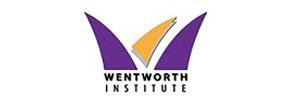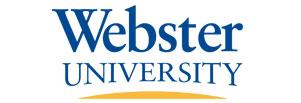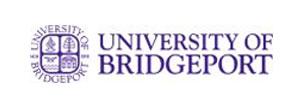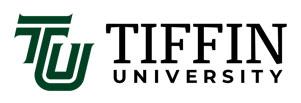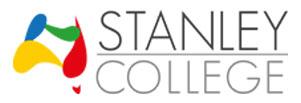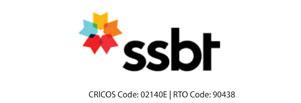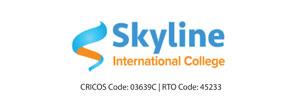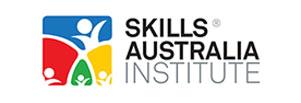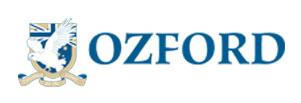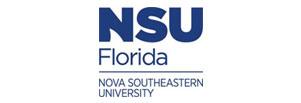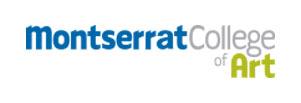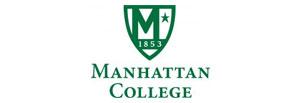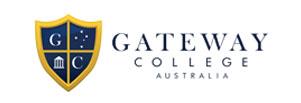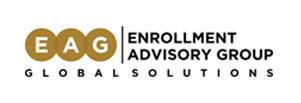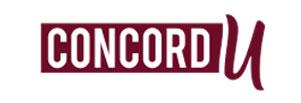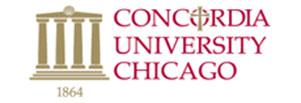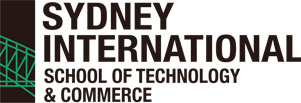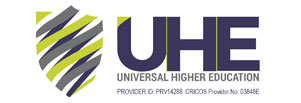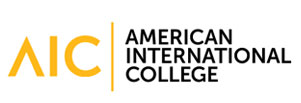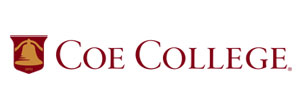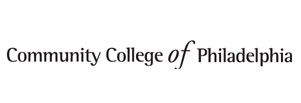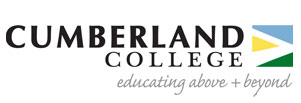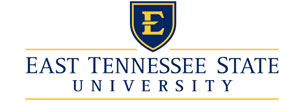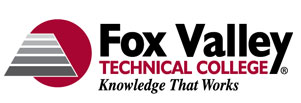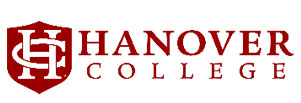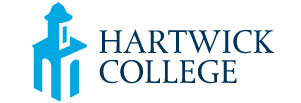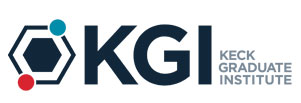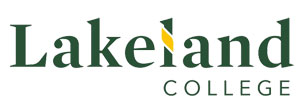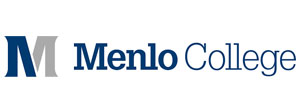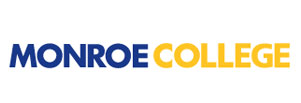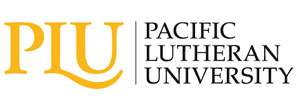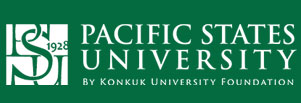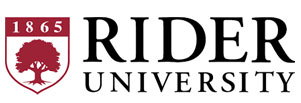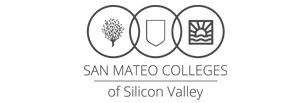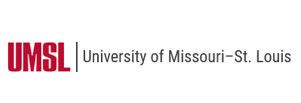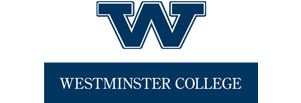
Study in Canada
About Canada
The UN as the number one country that ranks Canada in safety and quality of life. Having a large Asian/ Indian Diaspora of students, Canada offers a truly international educational experience. Canadian degree or diploma is recognized in almost all parts of the world as being of the high standard. Cost-wise, Canada is cheaper (cost of education and the cost of living). Tuition fees for international students in Canada are cheaper than comparable countries. 90 universities and 150 colleges and technical institutes offer a variety of programs.
Covering most of the northern part of the North American continent, Canada is the second-largest country in the world(after Russia), with a total land area of 9.9 million square kilometers. It stretches from the Pacific Ocean on the west, and to the Atlantic Ocean on the east. Northern Canada reaches into the Arctic Circle, while southern Canada stretches below the northern points of the United States(with which its hares the longest border in the world). The capital city is Ottawa(lies in the province of Ontario).
Climate
Because it’s large in area, Canada’s climate varies considerably across its regions. But generally, the country is known for its cold and sometimes long winters, beautiful and mild “shoulder seasons” (fall and spring), and hot but often short summers.
History and Population
Canada’s first inhabitants were Native Canadians, also known as aboriginal peoples, including Inuit peoples in the North. It was then settled by the British and French, and for a period of time was governed then heavily tied to England. In 1982 it formally severed its legal dependence on the British Parliament with the Act of Canada. Today’s Canada has more real ties with the U.S.(its largest trading partner) than with Britain, though its foreign policy is distinct from America’s and it enjoys strong historical links with Britain. Canada was a founding member of NATO and the United Nations.
Canada’s population is now just over 33 million, which is relatively small for a country of this size. Because much of the area is still wilderness, most Canadians live in highly urbanized centers in the south; nearly90% of the population is concentrated within 160 kilometers of the U.S. border. Canada has two official languages: English (59%) and French (22%). Almost 20% speak another language.
Society and Culture
Today, Canada remains home to a large number of aboriginal peoples, now called First Nations, but it is truly a multicultural and multi-ethnic country. Over the past century and a half, it has welcomed 15 million immigrants, thanks to a national policy of multiculturalism. Canada’s diverse customs, cuisines, traditions, sports, and celebrations are a product of its aboriginal and European history combined with its recent waves of immigration from countries all over the world.
Canada is considered a peaceful, safe, and orderly country. Its violent crime rate decreased for 10 consecutive years from 1993 to 2003. Firearms are strictly controlled. Canadians enjoy a standard of living which is among the highest in the world.
Economy
One of the world’s wealthiest countries, Canada is a major industrialized trading nation. It is a member of the G7/8, the G20, the Organization for Economic Co-operation and Development, and many other international bodies. It boasts a highly educated workforce and an increasingly diversified economy, but it is unusual among developed nations in the continuing importance of its natural resources sector(e.g., logging and oil). The Canadian economy is market-oriented like that of the U.S., yet the government tends to provide more support and intervention than does the U.S. government. International trade is an important part of the Canadian economy, especially with the U.S. The currency is the Canadian Dollar.
Government
Formally considered a constitutional monarchy, Canada is governed by its own House of Commons. While the governor-general is officially the representative of Queen Elizabeth II, in reality, the governor-general acts only on the advice of the Canadian prime minister. While two main political parties tend to go back and forth in terms of who is in power, Canada’s government is overall incredibly stable and secure.
Living Conditions and Cost of Living
Many people find the cost of living in Canada is significantly lower than their home country, but of course, this is not the case for all students(e.g., students from India or Nepal). Canadian housing is generally inexpensive compared with other developed nations-the average house price in Canada is around five times the average annual wage. Other costs are comparable or a little less expensive than other industrialized nations, with the exception of car insurance, which can be quite expensive in Canada. Citizenship and Immigration Canada estimates that international students require approximately $10,000 CAD per year, not including tuition fees, to cover living expenses.
Why Study in Canada?
Out of all the many choices available to students, Canada comes out on top. In fact, the number of international students has risen dramatically over the last few years. Why the sudden infatuation with Canada and its maple leaf? Here are some good reasons to choose Canada for your studies.
Live in a bilingual environment
Canada is a bilingual country, which makes studying here an excellent opportunity to develop your language skills and boost your prospects for an interesting career. Coursework in French and English is an integral part of Canada’s educational system, which enriches its cultural and community life.
Get benefits from a world-class education
Canadian college and university diplomas are recognized around the world. The Canadian educational system encourages cross-disciplinary studies and the development of transferable skills (e.g., critical thinking, teamwork, and communications) and uses cutting-edge technology and digital media. Six Canadian universities ranked in 2016-2017 top 100 for the best universities in the world according to the Times Higher Education World University Ratings. The University of British Columbia (19th), the University of Toronto (21st), McGill University (45th), Western University (67th), York University (75th), and the University of Montreal (100th) all made the cut.
Gain work experience in Canada after you graduate
The Canadian government offers a work program to students who have obtained a diploma from a post-secondary school in Canada and are looking to gain work experience. This is an excellent way to continue to live in Canada while diversifying and developing your professional skills.
Ride Canada’s tech wave
The telecommunications, digital media, video games, biotech, and aeronautical engineering industries are particularly strong in Canada. In addition, Canada was the first country to link its schools and libraries to the Internet through its innovative SchoolNet program. It is therefore not surprising that nearly 90% of Canadian households are connected to the Internet. In fact, according to a study by the Canadian Internet Registration Authority (CIRA), Canadians rank 2nd in the world for the average number of hours spent online per user (41.3 hours per month). Among G8 countries, Canada takes 2nd place in terms of Internet penetration rates. What’s more, Wi-Fi is accessible virtually anywhere in the country. For example, Montreal has launched an initiative to provide free Wi-Fi across the city. This will make it easy to stay in touch with your family and friends!
Enjoy excellent quality of life
According to QS World University Rankings, three Canadian cities, Toronto, Montreal, and Vancouver, made the list of the top 50 student cities. The ranking was based on several criteria, including affordability, the diversity of the student population, and employers’ perception of graduates on the job market.
Canada boasts an enviable quality of life, with a cost of living (e.g., housing, transportation, tuition) that is lower than in other countries, such as the US, France, and the UK and offers safety, stability, and respect for the rights of individuals and communities.
Have an enriching cultural experience
Canada has a highly diverse population, resulting in a rich and vibrant cultural scene. To begin exploring what Canada has to offer, visit each province’s tourism website. Below are a few recommended experiences that should not be missed. Enjoy the sounds of the Montreal International Jazz Festival: A must for music lovers, this world-renowned event brings together over 3,000 artists from some 30 countries every year. More than 2 million festival-goers floods the city’s streets for the 1,000 concerts on offer!
Don a pair of cowboy boots for the Calgary Stampede: The Calgary Stampede is one of the largest outdoor rodeos in the world and attracts over 1 million visitors every year. In the space of just a few weeks, the city becomes one big party, with its residents dressed as cowboys, its buildings and storefronts decorated with a western flair, and barbecue and pancake breakfasts served everywhere.
Take in a hockey match: Hockey is to Canada what soccer is to Europe. It’s more than a national sport; it’s practically a religion! Canada has seven national hockey teams (Montreal, Toronto, Vancouver, Edmonton, Calgary, Winnipeg, and Ottawa). To truly experience the frenzy over hockey, you need to watch a match during the playoffs, which generally take place around May.
Indulge in some poutine: This perfect blend of French fries, gravy, and cheese curds is a treat enjoyed by locals and tourists alike, at any time of day or night. Several Canadian cities even hold an annual Poutine Week!
Visit a sugar shack: Mid-march to mid-April is the sugaring-off season in Quebec when sap (also called maple water) is harvested to make maple syrup. To sample all sorts of treats made with this wonderful product, nothing beats a visit to a sugar shack, a festive place to eat, dance, and put on a few pounds!
Discover the country’s natural beauty
Canada is an extremely vast country: Its surface area is 14 times larger than that of France. It offers a multitude of magnificent landscapes that can be explored throughout the country’s four distinct seasons. Many Canadians complain about the country’s harsh winters, but the cold season provides an opportunity for dedicated skiers and ice skaters to practice their sport in majestic surroundings. Here are just some of the most scenic places to visit: the pristine beaches of Prince Edward Island, the impressive fjords of the Saguenay and the Percé Rock of the Gaspé in Quebec, the fascinating Rockies and Lake Louise in Alberta, Niagara Falls in Ontario, Jasper National Park also in Alberta and Whistler Mountain in British Columbia. From the sea to its mountains, prairies, and forests, Canada is an endless source of natural beauty!
For international students, very few places offer the advantages that Canada does. Its universities, among the best in the world, are at the heart of its rich and diverse culture. Canada is a country with an excellent standard of living and where there are many opportunities to get some experience in your field of studies. As a bilingual, safe, and welcoming place, Canada won’t disappoint students who are looking to broaden their horizons.
Education System in Canada
Education in Canada is under the complete jurisdiction of the provinces and territories. Public education in Canada is free up to and including the secondary school in all the provinces. At the post-secondary level, institutions are divided into community colleges and universities. Also, there are significant differences between the education systems of the different provinces of Canada. Secondary schooling in Canada could go up to Grade 11, 12, or 13, depending on the province. Post-secondary education is offered by Universities, University Colleges, Community Colleges/Technical Institutes and, Career Colleges
Universities: Virtually all Canadian universities are public institutions, which is the main difference between Canadian and American universities. They offer a broad range of courses and degrees from undergraduate to doctorate and also certificate and professional degrees.
Canadian universities offer high-quality education and are very well respected around the world. A degree from a Canadian university holds substantial prestige, thus making Canada a primary target for many international students.
University degrees are offered at three successive levels–bachelor’s, master’s, and doctoral. Bachelor’s degrees normally require three or four years of full-time study, depending on the province. An honors bachelor’s degree involves a higher degree of concentration in the major subject, as well as a higher level of academic achievement, and in some cases, an additional year of study. A master’s degree typically requires two years of study after completion of either a general or an honors baccalaureate program.
University Colleges: Canadian university colleges offer students a choice of either academically-oriented university degree programs or practical-oriented college diplomas and certificates. They also offer combined degree/diploma programs and university transfer programs.
A community college is a public post-secondary educational institution that offers a variety of programs to high-school graduates and adults seeking further education or employment training. Public colleges offer vocational programs in a wide range of professional and technical fields including business, health, science, agriculture, applied arts, technology, skilled trades, and social services.
Diplomas are awarded for the successful completion of two- or three-year programs, while certificate programs most often take one year to complete.
Many colleges offer university transfer programs, providing the first two years of a university
undergraduate program. Many also offer bachelor’s and applied for degree programs. Colleges are much cheaper than universities and more career-oriented.
Community colleges and technical institutes: They typically have a more vocational-related curriculum. These institutes have the primary function of responding to the training needs of business, industry, and public service sectors. Most colleges and technical institutes offer diplomas and certificates rather than degrees.
Technical/ Career College: This is a privately owned and operated school. The main objective is preparing students for the job market. They specialize in such areas as business, computers, and secretarial skills. These institutes are provincially approved and regulated, ensuring that program standards and quality are maintained. The academic year usually starts in September and ends in May, and is normally divided into two semesters. Some institutes operate on a semester or trimester system and admit students in January and/or May as well as September.
Canada claims one of the highest rates of post-secondary education completion in the world. According to the 2006 census, six out of every10adults between 25and 64years of age had completed some form of post-secondary education. Enrolment in post-secondary education has grown significantly in recent years, due to increasing educational demands in the labor market rather than because of population growth. Post-secondary institutions are located throughout the country; there are approximately 70 universities and 80 colleges in Canada.
Types of certification
- A certificate is a qualification awarded upon successful completion of a program, which is usually one year in length and is offered at colleges.
- The diploma is the qualification awarded on the basis of one or two year’s successful study and is offered at colleges.
- Undergraduate/bachelor’s degrees are awarded by a university after four years of full-time study and lead to graduate-level studies.
- Graduate/post-graduate degrees lead to advanced degrees, diplomas, and certificates. A pre-requisite to participate in graduate studies is a bachelor’s/undergraduate degree (4 years).
In Canada, the provinces and territories are responsible for all levels of education including colleges and universities. In addition to post-secondary options, Canada offers a wide range of independent private boarding schools for younger students noted for their excellence in preparing young men and women for university and college placement.
Cost of Education in Canada
Tuition fees in Canada vary by institution and province, but the cost is more affordable when compared to other countries around the world.
The average price for international undergraduate students starts at around CA$14,000 (US$10,414) per year. The average price for international postgraduate students is around CA$42,000 (US$31,243) per year. Institutions that do not grant degrees to students are usually cheaper than universities.
For more specialized fields of study, tuition fees in Canada range from CA$12,183 (US$9,143) for nursing graduate programs or CA$13,962 (US$10,478) for Education degree, to CA$53,105 (US$39,855) for an undergraduate dentistry degree.
On-campus: Though international students are allowed to work on the campus of any publicly-funded, degree-granting institution, these jobs are often difficult to obtain and do not provide sufficient funds to sustain education costs.
Practical Training: In addition, there may be opportunities for practical training which entail a period of authorized employment, designed to allow foreign students to have professional work experience related to their field of study.
Test Requirements for Canada
BUSINESS
Undergraduate/ Bachelors level
- 70% in 12th grade
- TOEFL: PBT: 580-600 min.
- CBT: 237-250 min.
- IELTS: Not less than 6:00 in each band
- 12th-grade level Maths
Graduate/ Post-Graduate level
- 2-3 years’ full-time work experience
- GMAT: 580-600 min.
- TOEFL: PBT: 580-600 min.
- CBT: 237-250 min.
- IELTS: 6.5 overall and Not less than 6:00 in each band
- 4 yr bachelor’s degree, 70% aver.
Diploma
- Flexible admission
- TOEFL: PBT: 550 min.
- CBT: 213 min.
- IELTS: overall 6 Not less than 5.5 in each band
COMPUTERS
- Undergraduate/ Bachelors level.
- 70% in 12th grade
- TOEFL: PBT: 580-600 min.
- CBT: 237-250 min.
- IELTS: Not less than 6:00 in each band
- 12th-grade level Maths
Graduate/ Post-Graduate level.
- 4 yr bachelor’s degree, 70% aver. Preferably in Computer Science
- TOEFL: PBT: 580-600 min.
- CBT: 237-250 min.
- IELTS: overall 6.5, Not less than 6:00 in each band
Note: Some universities will require the GRE Score (1200-1500)
Diploma
- Flexible admission
- TOEFL: PBT: 550 min.
- CBT: 213 min.
- IELTS: 6.0 but Not less than 5.5 in each band.
- 12th-grade level Maths
#You are advised to make a call at 977-9851002559 (Cell/Viver/Whtaapp) or visit our office for the updated information.
Required English Tests in the USA
All Undergraduate Courses
- Pass % in 12th grade
- TOEFL: PBT: 500 min., CBT: 173 min., IBT: 61
- IELTS:6.0/5.5
Undergraduate Credit Transfer:
- At least 1st-year pass certificate or first 2 semesters of a Bachelor’s program
For all Graduate Courses
- 4 yrs. Bachelors degree, Above 55%
- GMAT: 580-600 min.
- GRE: 300 or above
- TOEFL: PBT: 580-600 min., CBT: 213 min. IBT: 79
- IELTS: 6.0/6.5
Note: 3 years BBA in Nepal is eligible for direct entry into an MBA as well.
English Language Requirements
All students must submit the required English language Proficiency Test report related to the course. TOEFL 61 iBT or IELTS 5.5 is the minimum test score required to apply in most of the US universities for admissions and scholarships. Over 2500 institutions in the USA recognize the IELTS exams including many top-ranked institutions.
Admission Procedure for Canada
Follow these basic steps for applying in Canada:
- Identifying universities and the courses of your interest
- Request universities for application forms
- Taking various required tests
- Arranging and preparing essays and recommendation letters
- Completing and sending application forms along with required documents
- Applying for VISA after obtaining I-20 from the college
Selecting University
While selecting the right course and University keep in mind the following points –
- Your academic grades (including achievements)
- Test scores (GRE/GMAT/SAT/TOEFL/IELTS)
- Your financial capacity
- Major (Specialization) subjects that you are interested in
- Term of the entry (Fall/Summer/Spring)
- The rank and reputation of the University
- The student to faculty ratio of the college
- The location of the school (Big city/Smalltown/Rural setup)
- The climatic conditions (not to be stressed, unless you have health constraints)
Recommendation Letters
A letter of reference or recommendation letter plays a very important role in the admission process, especially for Masters and Doctoral courses. A recommendation letter is a signed statement from a person who knows you well professionally or has taught you in a subject that is related to the course you are applying to. It should list your positive and negative qualities, strengths and weaknesses, your character and integrity, and other such information.
The author or teacher must indicate his position, how long he/she has known the applicant, and in what capacity. He/she should briefly discuss the need, importance, and usefulness of the study the applicant proposes to undertake. Authors are usually asked to rank applicants in their letters of recommendation, which helps admission officers to interpret the academic credentials of foreign students. Students should obtain letters of recommendation (often on the prescribed forms sent by the institutions) from teachers who know them as a person as well as a student. You may like to request your author to give concrete examples that may show your qualities and help your case.
Essays / Statement of Purpose(SOP)
The personal essays, and/or statement of purpose, also play a very important role in the process of evaluating your application for both admissions as well as financial aid because it gives the faculty, assessing your application, information about you as an individual. For MBA candidates this is probably the most important criterion. In the statement of purpose, which must be concise, the student must define his or her academic goals, and/or research plans. It should include justification for choosing the academic program and specialization, and for selecting the particular college as well as the advantages and benefits of studying that particular course.
Scholarship in Canada
Scholarships are one way that international students can help finance their studies in Canada. But, there are limited scholarships available in Canada. They rarely cover the full cost of a study program and they are not always easy to find. Scholarships are non-repayable financial awards. They are generally allocated to students with outstanding academic achievements, although some also recognize volunteer and work experience. You must apply for some scholarships, but others are awarded automatically.
Scholarship funding for international students who wish to study in Canada is limited, highly competitive, and primarily available at the postgraduate level. Nevertheless, here are some tips and resources to help you identify possible scholarship opportunities.
Start at home
Students should first explore scholarships and funding possibilities in their home country. Contact the Department of Education in your country of citizenship to determine if there are awards for which you may be eligible.
Contact your chosen university
Contact the financial aid office of the university you wish to attend to request information about scholarship opportunities for international students and any applicable guidelines. Although Canadian universities do not typically award scholarships to foreign students, there are a growing number of institutions that offer entrance scholarships.
Plan ahead
In accordance with Citizenship and Immigration Canada regulations, you must prove you have enough money to meet your financial needs while studying in Canada before beginning your studies. So, if you’re going to pursue a scholarship to help finance your education, start researching opportunities early.
Research additional opportunities
Learn about scholarships administered by the Canadian government, provincial governments, private foundations, and not-for-profit organizations.
#You are advised to make a call at 977-9851002559 (Cell/Viver/Whtaapp) or visit our office for the updated Scholarship Information.
Accommodation in Canada
Each institute has its own policy for housing and may offer a range of options for single and married students. Most common types of accommodations are:
School-Provided Homestays: A homestay usually consists of a Canadian family hosting a student in their home while the student attends classes in Canada. This includes meals as well as a private, furnished room. (Cost: CDN $ 400 – $ 800 per month)
School-Provided Residence/Dormitory: Many schools have accommodation conveniently located on or near their campuses. There is usually an option of either a shared or private room or dormitories. (Cost: CDN $ 3000 – $ 7500 per year)
Off-Campus Housing: Usually many students share or rent apartments to save costs. Listings of available apartments or homes are published weekly in local newspapers. Rents vary greatly according to the location and time of year. (Cost: CDN $ 250 – $ 700 per month)
Most Canadian Institutes require that all students including international students be covered by an insurance policy. Some provinces like Alberta, British Columbia, and Saskatchewan cover international students under their provincial health care plans. Students studying in other provinces must arrange for private medical coverage through private insurance companies, which approximately costs about CDN $ 35 per month.
Document Checklist for Canada
The following documents are required to apply for a student visa to Canada.
- All academic documents from year 10 (SLC) to the last Qualification
- A valid passport or travel document of yours and each family member accompanying you
- Score Report of TOEFL/SAT/GRE/GMAT received from ETS
- Your Resume
- Work Experience Letter /Training Certificates(if any)
- Marriage Certificate(if any)
- Impressive Statement of Purpose (SOP)
- A completed Application form filled and signed by the student
- Essays, Articles, or Writing Samples (if any ) preferred for Master and Ph. D
- Recommendation Letters from your professors/faculty (Recommended)
- If you have certificates of any Awards or any of your involvement and achievement in ECA (Extra-Curricular-Activities), Participation in Social Campaigns, it is recommended to show these certificates
You are required to show the proof of having sufficient funds to study and live in Canada for yourself and the family members accompanying you while you are in Canada. Here are some of the points that help you to prove that you have enough funds to support you and your dependents(if) during your study in CANADA:
- Proof of a Canadian bank account in your name if money has been transferred to Canada;
- Student Education Loan Proof Letter from a financial institution of your home country;
- Bank Statement showing the transactions for the past four months.
- Bank Draft in convertible currency;
- Payment of Tuition and Accommodation Fees Confirmation Letter;
- A letter from the person or institution that proofs the source of your funding money;
- If you have a scholarship or are in a Canadian-funded educational program, you need to show the proof of funding paid from within Canada
- A Letter from your bank (who is providing you Education Loan in your home country) stating that funds are available for the study.
- Affidavit of Financial Support such as Letter of Sponsorship signed by your sponsor or your parents
- Relationship Certificate
- Income Source Verification
- Tax Clearance Certificate
- The University/College in Canada must complete and send you a letter of acceptance. You must include the original letter with your study permit application Note: Nepali language Documents need to Translate in English and Notarized copy of all Documents are required.
Work Prospects in Canada
Working Life in Canada
If you’re looking for full-time employment in Canada, expect to be working a 36.6 hour week – the national average as of 2012. The working week runs Monday to Friday, with employees averaging an eight-hour working day. The average Canadian net salary in 2016/17 is CAD$53,799 (approx. £30,500), compared to the UK average of £27,000 (approx. CAD$47,700).
The minimum wage in any profession is set by each individual province. Holidays are issued as standard, with workers being entitled to nine paid public holidays, and a minimum of two weeks’ annual leave after one year of paid work; this increases to three after six years’ service.
The tax system in Canada benefits the lower income brackets, where they’re fixed at 15% on any salary below CAD$41,544. In the neighboring USA, tax rates are already at 25% on salaries upwards of $35,000.
While you’ll always be able to find a seasonal job in the hospitality and tourism sectors for a bitesize experience of the world’s second-largest country, the competition will be fierce for permanent employment in the metropolitan areas. However, you’ll thrive in these areas of vibrancy and variety.
In your downtime, you’ll be able to experience the outstanding wilderness, from the mountains of British Columbia to the world-famous Niagara Falls.
Jobs in Canada
Canada is a wealthy nation, leading the way in many global industries:
- Manufacturing: aerospace technology, cars, machinery, and equipment.
- Natural products: agriculture, biofuel production, and the mining industry.
- Technology: wireless technologies, software, and video game development.
Unsurprisingly Canada is the global maple syrup hub, with 80% of the world’s supply being produced there. Roughly 90% is produced in Quebec alone. The Labour Force Survey January 2017, conducted by Statistics Canada, shows that overall unemployment in Canada stands at 6.8%, falling from 7.2% since January 2016. Employment is on the rise in Ontario, British Columbia, and Nova Scotia, while rates are unchanging in Quebec, Alberta, and New Brunswick.
A 2014 survey by the Conference Board of Canada pinned Calgary, Ottawa, Waterloo and Toronto as thriving cities to live and work in.
Summer jobs
Taking a summer job in Canada is an ideal way to experience what the country has to offer at a glance, fitting an unmissable experience around your studies.
The majority of summer jobs available in Canada are in summer camps or hospitality environments, meaning you’ll get a real feel for living and working in Canada and not just the tourist’s experience. Some summer work organizations with opportunities in Canada include:
- AmeriCamp Canada
- BUNAC Work in Canada
- Nyquist Camp Canada
- Smaller Earth
Summerjobs.com and Summerjobs.ca are search engines geared towards summer work in Canada.
Teaching jobs
If you hold a Bachelors’s degree, are fluent in English, and have hands-on teaching experience, becoming an English tutor may be the job for you.
With English being one of Canada’s official languages, demand is relatively low for international English teachers. Canadian citizens are at a greater advantage for filling teaching positions, however, there are a number of opportunities in Canada’s larger cities, such as Toronto and Vancouver, for Teaching English as a Foreign Language (TEFL) certified candidates.
Internships
An internship is a perfect way for any student or graduate to immerse themselves in Canadian culture, enhancing their skills and proving themselves to future employers in an exciting environment. In order to complete an internship in Canada, you’ll need to secure the correct work permit or visa (see Canadian visas for more information).
If you’re looking for an internship in Canada, here are some good places to start:
- BUNAC Vancouver Internship can last up to six months and is aimed at English-proficient students and graduates.
- Latitude International has internship opportunities based in Toronto, Vancouver, and Montreal.
- Oyster Worldwide offers volunteering and paid-work programs overseas.
Permanent Residency in Canada
Canada is known as the most ideal country to obtain Permanent Residency Visa, in view of its soft immigration policies, high employment rate, and perfect settings to raise a family. There are different immigration programs in Canada, which offer Permanent Residency Visa to highly skilled and talented overseas workers and professionals, i.e. Express Entry System, Quebec Skilled worker Program (QSWP), Provincial Nominee Programs (PNPs), etc.
However, most of these programs follow a point-based immigration system, and hence, your selection for a PR visa depends on the total points you score based on your education, age, language skills, work experience, etc. factors.
Study in CANADA: Frequently Asked Questions
- What are the alternatives to post-secondary education in Canada?
In Canada, tertiary education includes every type of formal teaching program past secondary schools, be it academic, vocational, technical, or the professional education offered primarily by universities, colleges, and special institutes. - What type of a high school diploma is accepted if applying in a Canadian post-secondary educational institution?
If you are concerned if the high school diploma you’ve earned in your home country will be considered legit in Canada, worry no more since any student possessing a government-accredited high school diploma from their home country may apply for admission to a Canadian University. - What is the main difference between Universities and Colleges in Canada?
Universities get to deal independently with academic matters regarding the curricula, methods, and teaching strategies. Universities have the power to set academic, admission, and graduation policies and standards, appoint staff, and undertake academic planning, meanwhile, Private Universities are out-of-province institutions permitted to provide degrees after a meticulous quality assessment process by the designated governmental authorities which give the green light to certain degrees. - What are the common requirements for getting accepted at a Canadian University/College?
In order to get admitted to a Canadian tertiary education institution, there are certain requirements students will have to meet, whether it is for undergraduate or a postgraduate program. Depending on the field of studies, programs and other relevant factors competition can vary. The two essential criteria are, however, high school grades/performance, as well as language skills, be it English (in most of the provinces) or French in francophone ones. - What are the chances of getting a postgraduate degree after you’ve graduated from a Canadian post-secondary educational institution?
Once you’ve completed a BA degree in a Canadian tertiary institute you are more than welcome to continue your postgraduate studies in this country, having full legal support from the Canadian authorities regarding migration policies. - How long does it take to get a Master’s degree in Canada?
Commonly, Master degrees last for a whole academic year including an obligatory internship added to the overall duration. Sometimes a Master’s degree can last for two academic years, depending on the curricula and the sensitivity of the program. - How long does it take to get a Ph.D. degree in Canada?
Ph.D. degree programs are commonly two to three years in duration, are separately funded and considered as a job position (not always), in the majority of the cases. - What is the difference between private and public post-secondary educational institutions in Canada?
Public universities are commonly independent of governmental monitoring and don’t require accreditation meanwhile private universities are commonly monitored by the state gathered education council. - What type of language skill does one need in order to get accepted in a Canadian post-secondary institution?
TOEFL (Test of English as a Foreign Language) scores are the most common language requirement for American universities. IELTS (International English Language Testing System) exam scores are the most common language requirement for Canadian universities. But most universities will accept either test as proof of your English language ability. You can take TOEFL and IELTS exams at testing centers worldwide. - Is there any additional requirement for international students willing to apply to a Canadian post-secondary institution?
International students are required to submit an essay and a personal statement of what they think they are fit for enrolling in the designated program together with documents stating their work experience (if any) up to the date. Of course, documents like reference letters, extracurricular activity certificates, and other proof of skills is always a bonus and very much appreciated. - Is getting accepted in a Canadian tertiary institution based on a competitive basis only?
In order to get admitted to a Canadian tertiary education institution there are requirements students will have to meet, whether it Is an undergraduate or a postgraduate program. Depending on the field of studies, programs and other relevant factors competition can vary. Commonly professional fields such as medicine and engineering are way more competitive, as well as applicative arts that require talent as the basic requirement (arts, music, sports). - What are the top Universities in Canada?
Ranked in the top 100 best Universities in the World are 5 of the best qualified Canadian Universities as following:•- University of Toronto
- University of British Columbia
- McGill University
- McMaster University
- University of Alberta
- How do I apply to a Canadian University/College?
By submitting all the necessary documentation and additional obligatory procedures via online routes. The answer will also be sent to you via mail. - Do I have to speak both French and English in order to get accepted into a Canadian post-secondary educational institution?
Not necessarily, if your target province is one of the English speaking provinces you must provide proof of sufficiency in the English language yet if you are looking forward to studying in a francophone province just the same, you must submit proof of proficiency in the French Language. *Exceptions are always present. - Is it mandatory to have a graduate degree in order to pursue a Master’s degree or Ph.D.?
Although an undergraduate degree is commonly mandatory to continue the postgraduate studies this might not always be the case. Commonly graduate degrees involve research upon a specific subject not having a degree doesn’t make you unfit for the program as long as you have all the necessary theoretical and literature knowledge packed. Normally in a postgraduate program, you have a mentor that supervises all your doings just as they are charged to evaluate via interviews and other means if you are suitable for engaging in the program. - How much does tuition cost at a Canadian University for an international student?
As Canada is divided into individually governed provinces the tuition fees for an academic year of tertiary education vary. - Where can I look for scholarships in order to study in Canada?
Scholarships for international students willing to study in Canada are difficult to be put in one place, as there are limitless opportunities granted by different entities around the world.
" An Authorized Representative of 350+ Top International Universities Across 10+ Countries Globally With Upto 100% Scholarship "
What Our Student Say






























Professional Accreditation & Memberships



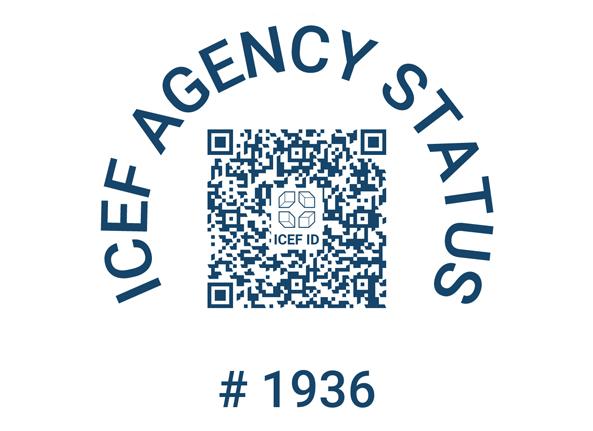
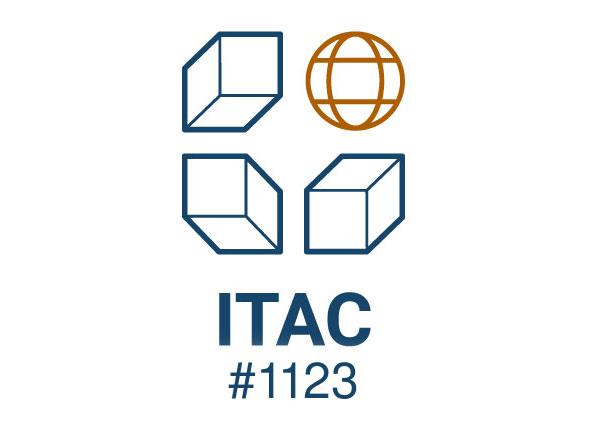

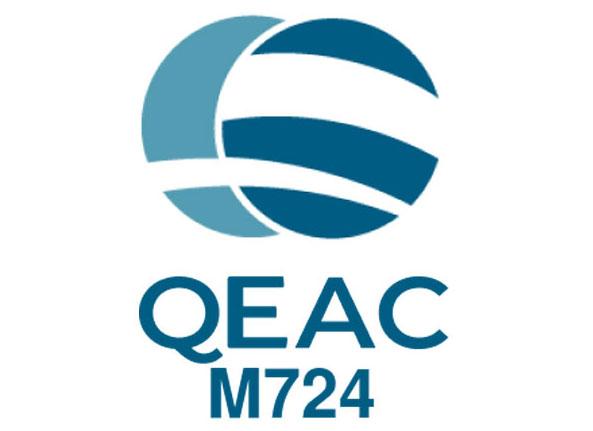
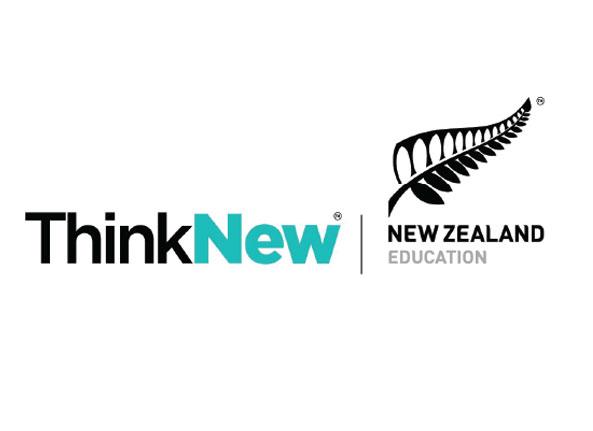

Student's Voice
Voices of students and parents.


